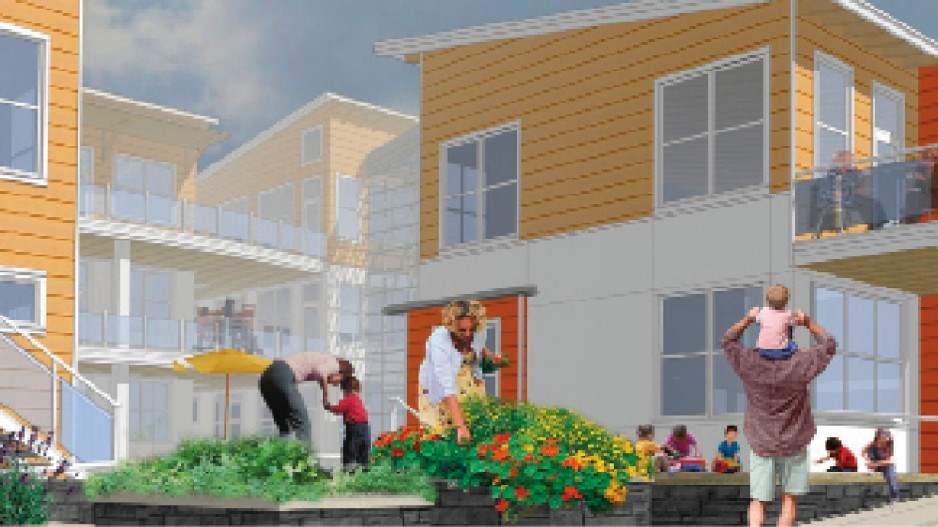Vancouver’s unaffordability is fuelling calls for city council to approve a co-housing development similar to ones in Langley, Burnaby and North Vancouver.
The move comes as Vancouver residents complain that efforts to split a large home into strata units requires dealing with “rapacious bureaucracy” (see sidebar) – and as the rise of laneway homes and other initiatives fail to dent the city’s status as the most expensive in North America.
Past attempts to create co-housing in the city failed when advocates were unable to find space.
Councillors earlier this month sent to public hearing a rezoning proposal to allow Cedar Cottage Cohousing Corp. (CCCC) to build a strata residential complex on land that now houses three homes on East 33rd Avenue near Victoria Drive. Hearings are likely to start in March and, if approved, would pave the way for the co-housing group to get a development permit, obtain financing and build their community.
Prospective CCCC members are vetted carefully before being allowed to join the community.
They’re required to pay $100 to be an associate member and can then attend three months’ worth of group meetings. Those accepted as full members pay $15,000 and have the right to vote on decisions. All monies paid go toward the purchase of their strata unit, explained the CCCC’s acting project manager, Brenda Birch, who attended an initial meeting of the group last February.
Unlike co-operative housing, where people rent, members of co-housing developments own their suites. Co-housing communities also place a higher priority on resident interaction.
Many condominium buildings have common rooms, shared spaces such as lobbies and mailrooms and laundry rooms.
Co-housing developments also have shared:
•woodworking rooms;
•children’s rooms;
•rooms for teens; and
•kitchens.
Birch told BIV that residents in the 30-unit community she envisions on East 33rd Avenue will eat together in the common kitchen up to five days a week. She said residents would rotate cooking duties for about 25 people so that each would have responsibility once every five weeks.
Decisions, however, are reached through consensus and constantly evolve. So group meal frequency and times at the East 33rd Avenue community have yet to be determined.
Alan Carpenter, who has lived in Langley’s Windsong co-housing development for the past 16 years, said residents in his community tend to have common meals about twice each week.
“We have an outdoor team that does landscaping maintenance, a cleaning team that does cleaning and a social team that maintains the social aspect and puts on events and plays,” said Carpenter, who is also a principal of Village Homes Development Corp., a company that partners with people who aim to create new co-housing developments.
Birch and Carpenter say that co-housing residents can save money because they require less individual living space.
Strata fees at co-housing developments, however, tend to be similar to condo developments.
Costs are saved by having residents do work that is normally contracted out, but overall expenses at co-housing developments are higher because there are more common facilities to maintain. •
Splitting a single home into strata units impractical
Former B.C. cabinet minister Ian Waddell told Business in Vancouver that he would have made more money had he sold his Trutch Street home and moved into a condominium, instead of dealing with contractors and city bureaucrats to split his home into three strata units.
He did the latter because he wanted to stay in his neighbourhood.
“My contractor was a great builder but poor at handling city hall,” Waddell said. “They have a rapacious bureaucracy, and I had to, in the end, go to the board of variance to get the final permit.”
While Waddell liked being able to design his own unit atop the home he has owned for decades, he was initially concerned about how well he would get along with buyers of two downstairs units.




